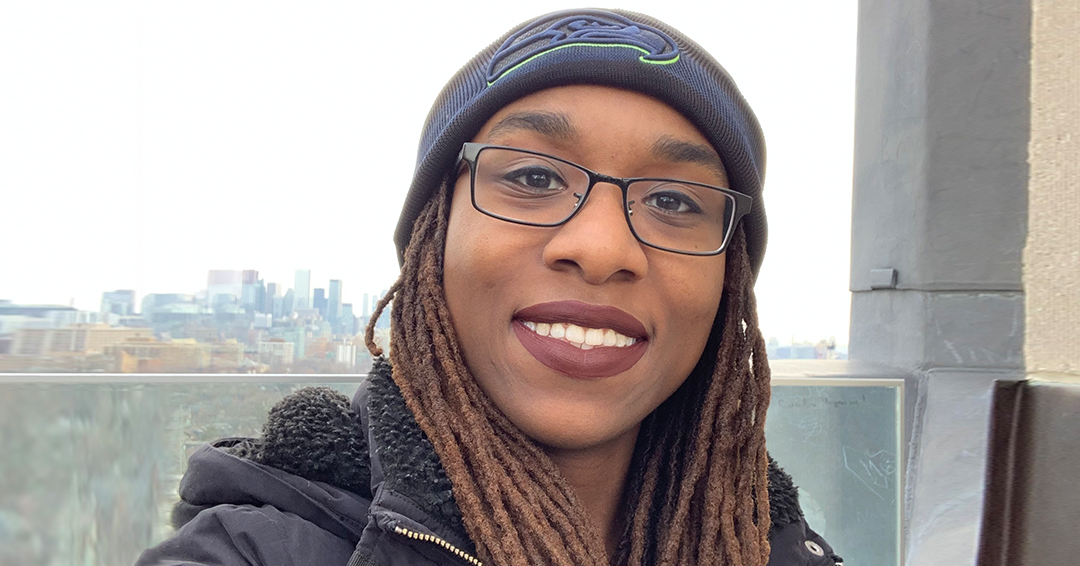
This Q&A series is part of Black History Month and Beyond, an initiative of the BHM Organizing Committee co-led by Black students and faculty from the Faculty of Medicine and Health Sciences with the Equity, Diversity, and Inclusion Anti-Racism Committee (EDI-AR) of the School of Population and Global Health.
1. Can you tell us a bit about yourself?
I’m a 5th year PhD student in the Department of Physiology. Born to Caribbean parents from Jamaica and Trinidad & Tobago, I was raised in Montreal all my life. I play the clarinet, I’m an avid anime watcher and I also love to read fantasy books. I am passionate about Equity, Diversity and Inclusion in the sciences, and hope to continue doing EDI work after I finish my PhD.
2. Can you describe your program of study and your research project?
I study neuroscience. My project focuses on understanding how tanycytes, specialized cells found in regions of the brain with an incomplete blood-brain barrier, can act as a bridge between the brain and the peripheral circulation. I am researching how these cells can sense changes in the blood content to signal to neurons in the brain that regulate blood pressure and water balance.
3. What inspired you to pursue your area of research? What do you hope to achieve?
After taking two endocrinology classes in my last year of undergrad, I became interested in understanding how the brain tightly regulates the body’s many functions. Researching tanycytes under Prof. Masha Prager-Khoutorsky (Prager-Khoutorsky Lab) was the perfect opportunity to study this because I’m able to make new discoveries about how these special cells contribute to brain-body communication. Being at the forefront of a research project has shown me how exciting it is to lead a project while interacting and collaborating with researchers from all over the world.
4. Why did you choose McGill?
Since I was young, it has always been my dream to attend McGill. After hearing about all the important researchers that are McGill alumni, I wanted to be a part of this community. Having my family close to me during my studies was also a key factor.
5. Can you describe your community involvement and why you feel it is important, especially as a member of the Black community?
I am the Blog Manager and Secretary of Black In Neuro, an international non-profit organization whose mission is to diversify the neurosciences by building a community that celebrates and empowers Black scholars and professionals in neuroscience-related fields. During my time at McGill, both as an undergraduate and a graduate student, I felt very isolated because the number of Black students in my program/field significantly dwindled as I advanced higher in my education. Even Black professors where non-existent. I decided to join Black In Neuro because I want to show the world that Black scholars exist and that we are EVERYWHERE. My work with Black In Neuro has been so empowering and fulfilling, and I hope to continue doing this type of work after my PhD.
6. How has your identity as a member of the Black community formed your research interests or community involvement?
Being a member of the Black community has shown me that while I love my research, it is also important to remember that scientists are also human beings with intersecting identities and experiences. While interacting with my labmates and fellow researchers, I continuously try to embody this ideal by encouraging people to try to make a change in society, no matter how small.
7. What advice would you give your younger self, knowing what you know today?
Looking back, I would tell my younger self to always advocate for what I believe in. Although it might take time, once you find your community of people who share your beliefs and ideals, you will flourish. I also want to stress how important it is to advocate for yourself when it seems like no one believes in you.
